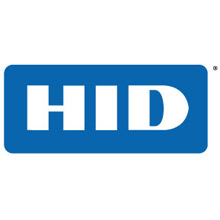 |
| Multi-technology smart cards support HID's installed base of physical access control cards whilst reinforcing the global move to a single cross-platform card used for multiple applications |
Nectar is a commercial and licensable reference implementation of a .NET virtual machine for embedded systems with a smart card dedicated operating system. The acquisition is consistent with HID Global's offering of a full range of smart cards and embedded products with high security and leading edge operating systems, supporting the company's development initiatives in a number of ways:
- In fast-moving vertical markets such as transportation, financial transactions and physical access control, there is an increasing need to have the ability to define and program custom applications in HID Global's extensive range of high security embedded systems. The ability to provide a .NET environment and development tool chain will reduce time-to-market and support costs while meeting the market's requirement for flexible, extendable and programmable systems.
- New HID Global software platforms associated with the issuance of secure identity are being implemented on the Microsoft .NET platform. These include naviGO™, Asure ID® 6.0, and iDIRECTOR™.
- Multi-technology smart cards support HID's installed base of physical access control cards while reinforcing the global move to a single cross-platform card used for multiple applications.
- HID supplies and supports multiple smart card platforms an operating systems which are highly optimized to customer needs as well as the intended market application. This diversity and flexibility will be further enhanced and strengthened with the .NET platform.
"As a leading supplier in the delivery of secure identity, this acquisition reflects yet another positive step in HID's growth in the support of multiple platforms and languages for smart cards," said Denis Hébert, president and CEO of HID Global. "The ability to license the .NET reference implementation to third-parties supports our objective of expanding the HID offering into a variety of vertical markets that rely on secure identity to achieve compliance, security and convenience."
The Nectar virtual machine is a Microsoft .NET-compatible implementation of the standardized ECMA335/ISO 23271 Common Language Infrastructure. Nectar enables smart cards to integrate seamlessly with .NET execution environments through its use of standard Microsoft® tools and Windows® communication protocols. Nectar integration is performed using Microsoft's Visual Studio tools to provide seamless support for multiple programming languages (including Visual Basic, C#, J#, and C++), allowing developers and solution providers to capitalize on existing skills and code as well as reducing time-to-market and support costs.


















